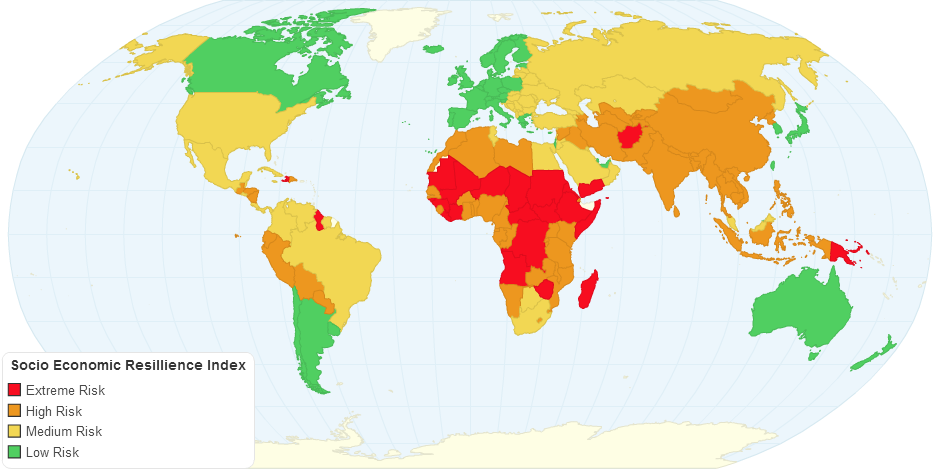This chart Shows Socio-economic Resillience Index by Country.
Economic resilence is the ability of a local economy to retain function, employment and prosperity in the face of the perturbation caused by the shock of the loss of a particular type of local industry or employer. Economics is the social science that describes the factors that determine the production, distribution and consumption of goods and services.
Economics focuses on the behavior and interactions of economic agents and how economies work. Consistent with this focus, primary textbooks often distinguish between microeconomics and macroeconomics. Microeconomics examines the behavior of basic elements in the economy, including individual agents and markets, their interactions, and the outcomes of interactions. Individual agents may include, for example, households, firms, buyers, and sellers. Macroeconomics analyzes the entire economy and issues affecting it, including unemployment of resources, inflation, economic growth, and the public policies that address these issues.
Socioeconomics is the social science that studies how economic activity affects and is shaped by social processes. In general it analyzes how societies progress, stagnate, or regress because of their local or regional economy, or the global economy.
10 years ago

